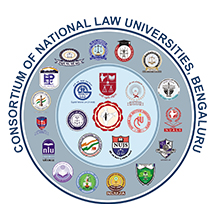
Competition Law Course Details - Fees, Subjects, Syllabus, Duration, Eligibility, Career Scope
Degrees offered: L.L.M
What is Competition Law
Competition law is a crucial branch of public law that emphasises preserving a competitive market and preventing monopolistic practices. This branch of law protects consumers while ensuring a level playing field for companies by regulating monopolistic behaviour, mergers and acquisitions, and other practices that may harm competition in the market.
Several courses are offered in Competition Law providing specialised knowledge and skills in this field. These Competition Law courses equip learners with an understanding of various competition law aspects, including laws, policies, and regulatory framework. In India, only Jindal Global Law School offers Competition Law courses in LLM degree.
By pursuing Competition Law courses, students will learn the principles governing anti-competitive behaviour and understand how to deal with it. They will also gain the skills necessary for legal practice in this field. Those who are willing to choose competition law can enrol in LLM programmes with a specialisation in competition law, including LLM Competition Law. There are also Diploma, Post Graduate Diploma, and certificate courses in competition law such as Intellectual Property Rights and Competition Law.
Competition Law- Important Dates and Events
- 7th December 2024- CLAT result out
- 9th December 2024-CLAT 2025 Counselling Registrations Started
Competition Law- Course Details
| Particulars | Values |
|---|---|
| Branch Name | Competition Law |
| Degrees | UG- BA LLB PG- LLM |
| Course Duration | UG- 3-5 years PG-2 years |
| Eligibility Criteria | UG- Bachelor's degree for LLB and 10+2 for BA LLB integrated course PG- LLB from a recognised institute in India |
| Admission process | Entrance exam |
| Entrance exam | UG- CLAT UG, AILET PG- CLAT PG |
| Course Fees | Rs. 3 Lakhs to Rs. 3.50 Lakhs |
| Job Profiles | Competition Lawyer, Competition Law Consultant, Policy Analyst, and In-house counsel |
| Top Recruiters | AZB & Partners, Khaitan & Co., Ernst & Young (EY). PwC, The Competition Commission of India (CCI) |
Top Law NIRF Ranking 2024
Students are advised to choose the law institute based on the NIRF ranking 2024. Generally, National Law Institutes maintain top positions and rankings depending on the educational facilities and the institute's stature. In the table below, students will find a list of top Law institutes based on NIRF Ranking 2024.
| Top Law Colleges | NIRF Rankings (2024) |
|---|---|
1 | |
2 | |
3 | |
4 | |
5 | |
6 | |
7 | |
8 | |
9 | |
10 |
Eligibility Criteria (UG & PG) of Competition Law
The eligibility criteria for competition law courses vary depending on the course, and the provider. For an undergraduate degree in Competition Law, candidates are required to clear their 10+2 examination from a recognised institute in India. Similarly, for a postgraduate degree programme, candidates require a bachelor's degree in any related field of law. In the table below, we have mentioned the eligibility requirements of Competition Law.
Eligibility Criteria for UG Courses
Candidates aspiring to pursue Competition Law courses at the undergraduate level must check the eligibility criteria of the course before applying for admissions. To be eligible for an integrated degree in law in the field of Competition Law course, they need to complete their 10+2 with a minimum aggregate score of 50 per cent. To apply for LLB, candidates require an undergraduate degree.
| Eligibility Parameters | Details |
|---|---|
Educational Qualification | 10+2 from a recognised Institute in India for an integrated law degree Bachelor's degree from a recognised institute in India to apply for LLB |
Minimum aggregate score requirements | 50 per cent aggregate score (5-10 per cent relaxation for candidates belonging to the reserved categories) |
Entrance Exams | Candidates need to appear for relevant entrance examinations (if any) |
Top Entrance Examinations for UG Courses
Aspiring candidates need to fulfil the eligibility requirements and follow the admission process carefully. While some colleges may provide admissions based on merit scores. A majority of the institutes provide admission based on entrance examinations. In the table below, we have listed the top entrance examinations for UG-level courses.
| Exam Name | Exam Level | Conducting Body | Exam Schedule |
|---|---|---|---|
National-level | Consortium of NLU's | ||
National-level | Pearson VUE | ||
National-level | NLU, Delhi | ||
State-level | State Common Entrance Test Cell - Maharashtra State | - |
Eligibility Criteria for PG Courses
If the individual wishes to pursue the course as a Postgraduate degree, then he/she must hold an LLB degree from a recognized board. He or she must also meet minimum eligibility criteria, which may differ based on the chosen institute. Mentioned below are the eligibility criteria for the postgraduate courses in the field of Competition Law.
| Eligibility Parameters | Details |
|---|---|
Educational Qualification | LLB from a recognised institute in India |
Minimum aggregate score requirements | 50-60 per cent, of candidates belonging to the reserved categories may get some relaxation of 5-10 per cent |
Top Entrance Examinations for PG Courses
In the table below, we have mentioned some of the popular entrance examinations required for admission to the Competition Law courses at the postgraduate level.
| Exam Name | Exam Level | Conducting Body | Exam Schedule |
|---|---|---|---|
National-level | Consortium of NLUs |
College Predictors VIEW ALL
Scope of Competition Law in India and Abroad
The scope of competition law is vast in India and abroad. Competition law is a very powerful and all-round option in the field of law. It applies to all sectors of the economy, from large businesses to small as well as public sector entities across the country. Both the government sector as well as the private sector have a number of opportunities for competitive law course graduates in various positions and roles.
There are various activities included in the field of competition law in India. This ranges from cartels, price fixing arrangements and abuses of dominant positions by market participants to collusive bidding and other forms of bid rigging. Outside India, the frameworks of competition law may differ. However, the fundamental objective remains the same which is to ensure fair competition and prohibit anti-competitive behaviours, agreements or arrangements.
The Competition Commission of India (CCI) is the regulatory authority in India and has ample vacancies for different people with different law degrees. After pursuing law, economics, business management, or related courses, students can find a variety of scope and employment opportunities in competition law.
Course Subjects
The subjects and syllabus of Competition Law may vary depending on law colleges or institutions in India. The Competition Law course syllabus is designed to enable students to take up professional practice in the competition law and policy field. Competition Law is not offered as a specialisation in undergraduate degrees, however, it is offered as a module. In this section, we will discuss the undergraduate and postgraduate syllabus of Competition Law.
Competition Law Syllabus for UG Courses
There are no specialisations offered at the undergraduate level for competition law. However, Competition Law is offered as a module. Listed below is the LLB syllabus of Himachal Pradesh National Law University, Shimla.
| Module 1- Competition Law- An Introduction | Module 2- Anti-Competitive Agreement |
| Module 3- Abuse of Dominant Position | Module 4- Regulation of Combination and Enforcement of Mechanisms |
Competition Law Syllabus for PG Courses
Here, we have mentioned the competition law topics covered in the one-year LLM syllabus of the University of Pune.
| Basic economic and legal principles | Development of law from MRTP to Competition Act 2002 |
| Competition Commission Of India | Competition Appellate Tribunal |
| Composition, Functions, Powers and Procedure | Award Compensation |
| Power to punish for contempt | Execution of orders |
Careers in Competition Law
After completing competition law courses, students will explore numerous career opportunities available in the competition law field. They work as lawyers in government sectors, private practice, and corporate counsels for large companies or small businesses. They can launch their careers as compliance officers at regulatory agencies or consultants advising clients on competition law issues.
There are also academic and research careers that graduates can pursue after competition law courses. We have mentioned below some of the popular job roles Competition Law course graduates can explore after Competition Law courses.
| Job Profiles | Job Description |
|---|---|
| Competition Lawyer | Competition Lawyers advise clients on compliance with competition laws. They represent them in competition-related cases, handle merger filings, and provide legal opinions on antitrust issues. |
Competition Law Consultant | A Competition Law Consultant works independently or with consulting firms, guiding businesses (small or large) on competition compliance. He or she also conducts competition audits and assists with merger notifications and competition assessments. |
| Policy Analyst | Policy Analysts assess competition-related issues, conduct research on competition law and economics and contribute to policy development. They also identify current or impending issues, examine proposed solutions, and create other solutions. |
| In-house Counsel | In-house Counsel specialising in competition law drafts, reviews, and negotiates various contracts and agreements. They provide legal advice on competition compliance and review business practices while ensuring the company's activities align with competition laws. |
| Independent Practitioner | Independent Practitioners emphasise enforcement issues such as information filing, defending medium-sized businesses, and more. They can also hire young law practitioners with experience in both business and civil disputes. |
Upcoming trends
In the last few years, the competition law course in India has garnered significant attention from young law practitioners. The course provides them with an understanding of the implications of changing regulations and making their business decisions effectively. Students and professionals in competition law need to keep up-to-date with the latest trends in this field so that they can make informed decisions and stay ahead of the competition. We have discussed below some of the upcoming trends and topics in competition law.
Digital Markets and Antitrust: Competition law has a crucial role to play in the digital economy where the dominance of digital platforms increases as the market moves online. This trend can explore topics such as digital platform dominance, data privacy, data-driven mergers, and the role of competition authorities in regulating digital platforms.
Enforcement and Remedies: In this topic, the focus is greatly on the practical aspects of competition law enforcement and remedies. It deals with the powers and functions of the competition authority, the adjudicatory procedure, investigative processes, and the remedies available in cases of anti-competitive behaviour.
Merger Control and Acquisitions: Merger control is a key area within competition law. It covers the legal framework for merger control, the evaluation of anti-competitive effects, and the role of competition authorities in examining mergers and acquisitions to protect market competition.
Job Profiles and Top Recruiters
Competition Law opens a lot of opportunities for students. It allows them to pursue a career in the legal profession. Students learn all aspects of competition law. Candidates can be employed as lawyers specialising in competition law. They can even work for government agencies responsible for enforcing such laws. There are many government agencies and departments and private firms that recruit Competition Law graduates to maintain competition law and policy.
Top Recruiters
- AZB & Partners
- Khaitan & Co.
- Ernst & Young (EY)
- PwC
- Competition Commission of India (CCI)
- Academia and Research Institutions
- International Organisations
Average Salary
The average salary of a competition law professional varies depending on various factors such as the individual's qualifications and experience. It is also based on job profiles, job positions, industry, organisation, and location. In the table below, we have mentioned the average salary trends of the Competition Law course.
| Job Profiles | Average Salary |
|---|---|
| Legal Associates | Rs. 4.5 LPA |
| Lawyer | Rs. 9 LPA |
| Senior Consultant | Rs. 16 LPA |
| Legal Counsel | Rs. 15 LPA |
| Professor | Rs. 13 LPA |
Required Skillset for Competition Law
Students seeking to pursue Competition Law courses require a mix of soft skills and technical competencies which enable them to effectively navigate the intricacies of competition and antitrust law. The table below highlights some popular skill sets required for Competition Law courses.
- Time management
- Good Communication
- Analytical Mindset
- Critical Thinking
- Industry Knowledge
- Detail-Oriented
Course Curriculum for Competition Law
The Competition Law course curriculum varies depending on the level of the course and across institutions. The courses covered in the curriculum of competition law equip students with a comprehensive understanding of the laws that govern competition in the economy. We have mentioned below the courses taught in the Constitution Law course curriculum.
- Nature and scope of competition law and policy
- Anti Competitive agreement
- Abuse of dominant position
- Regulation of combinations & enforcement mechanisms
- Modern dimensions of competition law
Popular Competition Law Entrance Exams in India
Frequently Asked Questions (FAQs)
Question: What are the competition law PG courses in India?
Answer :
There are three postgraduate courses offered with specialisation in competition law - MA offered by NLU Kolkata, LLM offered by IIT Kharagpur, and a PG diploma offered by ILS Law College, Pune.
Question: Which colleges offer competition law courses in India?
Answer :
Top institutes offering competition law courses in India include ILS Law College, Pune, IIT Kharagpur, West Bengal National University of Juridical Science (NUJS), and NLU Kolkata, West Bengal.
Question: Which cities in India are the best for working in competition law?
Answer :
Most of the practices associated with competition law are concentrated in Delhi and Mumbai as the office of Directorate General, NCLAT, and CCI all are sitted in these reagions. Most of the multinational companies also have their head offices in Mumbai and in other cities. Besides, Chennai, Hyderabad and Bangalore are also big hubs of commercial activities. So, one can find ample opportunities to work here in the field of competition law, especially, in the corporate sector.
Question: What are the main areas where competition law graduates can build their career?
Answer :
The main sectors where one can get placed after completing a competition law course include litigation, academics, judiciary, civil services, MNCs, law firms, corporate counsels taxation firms, regulatory bodies, and also work as aw clerks or assistants.















